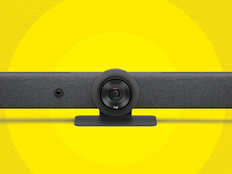9 Statistics That Prove Millennials Think Differently About College
Despite the manicured greens, brick walkways and picturesque campuses, college just isn’t what it used to be. But that isn’t a bad thing, according to the millennial generation, which is comfortable with technology and eager for change.
A Millennial Branding survey of more than 1,300 college students found that they are open to new ways of learning. Could the high cost of college be driving this change? Or could it be the ubiquity of free learning tools available online?
Regardless of the reason, it’s obvious that the higher education environment is changing. Ivy League schools are offering MOOCs (massive open online courses), and online colleges are growing rapidly. Are we poised for a new, democratic age of education? Or will technology reinforce the same traditions that colleges have upheld for centuries?
The answer remains to be seen, but college students’ attitudes could push that change more quickly than we expected. Below are a few key statistics from The Future of Education.
Of college students surveyed:
Read more about the technology that is powering academic success.








